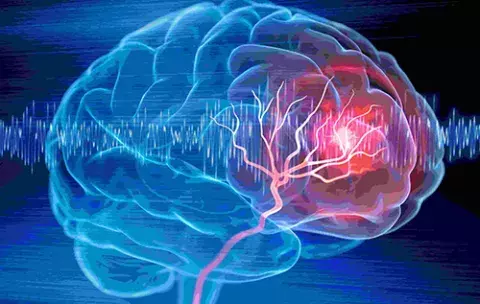Chronic loneliness may be linked with increased stroke risk
By Melanie Hinze
Chronic loneliness is associated with a higher stroke risk, independent of both depression and social isolation, research published in eClinical Medicine suggests.
The prospective cohort study examined data from the US Health and Retirement Study from 2006 to 2018. Included participants were aged 50 years or older and stroke-free at baseline. Loneliness was measured using the 3-item Revised UCLA Loneliness Scale. Incident stroke was assessed over a 10- to-12-year period, and loneliness change patterns with incident stroke were examined over a subsequent six- to-eight-year period. The researchers adjusted findings for demographics, health behaviours and health conditions.
The researchers found that higher loneliness scores at baseline were associated with incident stroke across all loneliness measures and persisted after adjusting for social isolation but not for depressive symptoms. However, individuals with consistently high loneliness patterns over time had significantly higher stroke risk, compared with those with consistently low loneliness patterns, and this persisted after adjusting for both depressive symptoms and social isolation.
The researchers concluded that addressing loneliness might have an important role in stroke prevention, and that repeated assessments of loneli ness over time might help to identify those who were particularly at risk.
Dr Rosanne Freak-Poli, Senior Research Fellow at the Victorian Heart Institute, School of Clinical Sciences at Monash Health, Monash University, Melbourne, said that these findings were not surprising.
‘From a series of work we have found that loneliness, social isolation and low social connection are each associated with cardiovascular disease, even when accounting for each other,’ she said.
‘For example, we found that among nearly 10,000 healthy Australians aged at least 70 years, participants with poor social health were 42% more likely to develop cardiovascular disease (p=0.01) and twice as likely to die from cardiovascular disease (p=0.02).’
Dr Freak-Poli added that, ‘When we look at the risk of stroke, social isolation more than doubles risk (234%), low social support more than triples the risk (316%) and loneliness is almost double (173%).’
Dr Freak-Poli told Medicine Today that it was an exciting time to be moving away from the traditional biological risk factors for cardiovascular disease.
‘We have an opportunity to bring prevention forward,’ she said.
‘My team are creating cardiovascular risk scores based on social determinants, including loneliness – this way we can intervene on the causes of the biological risk factors,’ she said. ‘This moves prevention into younger adulthood, when people are more adaptive to making life changes,’ she added.
eClin Med 2024; 102639. https://doi.org/10.1016/j. eclinm.2024.102639.


